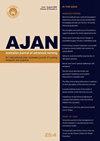报告指南对范围审查的重要性和价值:一个康复科学的例子
IF 1.3
4区 医学
Q3 NURSING
引用次数: 1
摘要
目的:范围审查使用系统的方法来综合知识体系。范围审查方法的使用越来越普遍。尽管建议指导范围审查的进行,但在方法和报告方面存在不一致之处。在这个案例研究中,我们反思了我们使用PRISMA范围审查扩展(PRISMAScR)的经验:清单和解释,以改进我们在PRISMA- scr报告指南发布之前最初进行的范围审查的报告。研究设计和方法:我们根据PRISMA-ScR纳入的22项标准评估了范围审查。对于每个标准,我们提供了一个等级,表示我们认为范围审查满足PRISMAScR中单个标准的程度。我们还提供了评论来证实我们的评级,以及对范围审查的建议修订和对未来范围审查的考虑。结果:我们在范围审查的初始报告中确定了一些优势,以及改进的机会。需要改进的最主要领域包括议定书登记、数据项和数据制图过程。根据我们的评估,我们对范围审查手稿进行了修订,以改进我们的报告。结论:我们的评估有助于突出使用报告指南来改进范围审查报告的价值,同时也暴露了一些挑战。将来,我们建议在初步准备范围审稿时参考指南,而不是回顾性的。关于这个话题我们已经知道了什么?•范围审查方法的使用正变得越来越普遍。•虽然已经发表了指导范围审查的建议,但范围审查方法和报告都存在不一致之处。本文补充的内容:•尽管存在一些挑战,我们发现PRISMAScR是一个有效的工具,可以指导我们对范围审查报告进行结构化的反思。•我们鼓励完成范围审查的作者利用prism - scr来指导他们自己的范围审查报告。本文章由计算机程序翻译,如有差异,请以英文原文为准。
The importance and value of reporting guidance for scoping reviews: A rehabilitation science example
Objective: Scoping reviews use a systematic approach to synthesize a body of knowledge. The use of scoping review methodology is increasingly common. Despite recommendations to guide the conduct of scoping reviews, inconsistencies exist with regards to their methodology and reporting. In this case-study, we reflect on our experience using the PRISMA Extension for Scoping Reviews (PRISMAScR): Checklist and Explanation to improve reporting for a scoping review we initially conducted prior to the release of the PRISMA-ScR reporting guidelines. Study Design and Methods: We evaluated the scoping review against 22 criteria included in the PRISMA-ScR. For each criterion, we provided a rating representing the degree to which we felt the scoping review met the individual criterion in the PRISMAScR. We also provided comments to substantiate our ratings, along with recommended revisions for the scoping review and considerations for future scoping reviews. Results: We identified a number of strengths in the initial reporting of our scoping review , as well as opportunities for improvement. The most substantial areas for improvement included the protocol registration, data items and data charting process. Based on our evaluation, we made revisions to the scoping review manuscript to improve our reporting. Conclusion: Our evaluation helps to highlight the value of using reporting guidelines to improve reporting of scoping reviews, while also exposing several challenges. In future, we recommend consulting the guidelines during the initial preparation of the scoping review manuscript rather than retrospectively. What is already known about the topic? • The use of scoping review methodology is becoming increasingly common. • While recommendations to guide the conduct of scoping reviews have been published, inconsistencies exist in both scoping review methodology and reporting. What this paper adds: • Despite some challenges, we found the PRISMAScR to be an effective tool to guide a structured reflection on our scoping review reporting. • We encourage authors completing scoping reviews to make use of the PRISMA-ScR to guide their own scoping review reporting.
求助全文
通过发布文献求助,成功后即可免费获取论文全文。
去求助
来源期刊
CiteScore
2.30
自引率
7.10%
发文量
27
审稿时长
>12 weeks
期刊介绍:
The Australian Journal of Advanced Nursing publishes a wide variety of original research, review articles, practice guidelines, and commentary relevant to nursing and midwifery practice, health- maternity- and aged- care delivery, public health, healthcare policy and funding, nursing and midwifery education, regulation, management, economics, ethics, and research methodology. Further, the journal publishes personal narratives that convey the art and spirit of nursing and midwifery.
As the official peer-reviewed journal of the ANMF, AJAN is dedicated to publishing and showcasing scholarly material of principal relevance to national nursing and midwifery professional, clinical, research, education, management, and policy audiences. Beyond AJAN’s primarily national focus, manuscripts with regional and international scope are also welcome where their contribution to knowledge and debate on key issues for nursing, midwifery, and healthcare more broadly are significant.

 求助内容:
求助内容: 应助结果提醒方式:
应助结果提醒方式:


